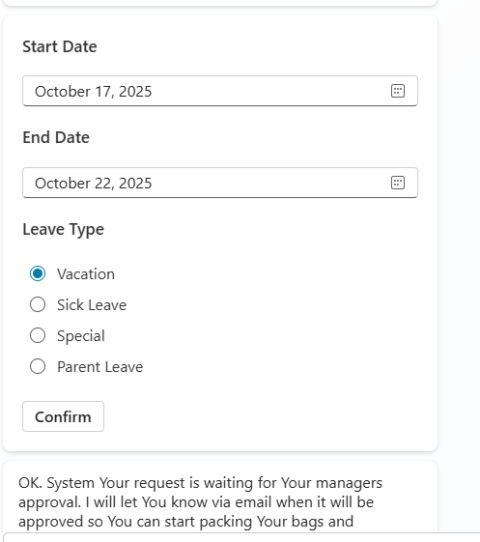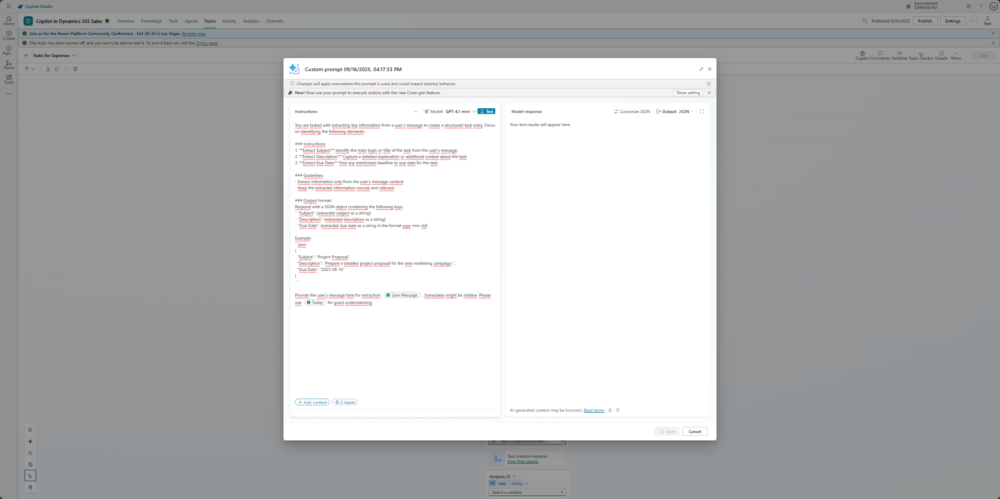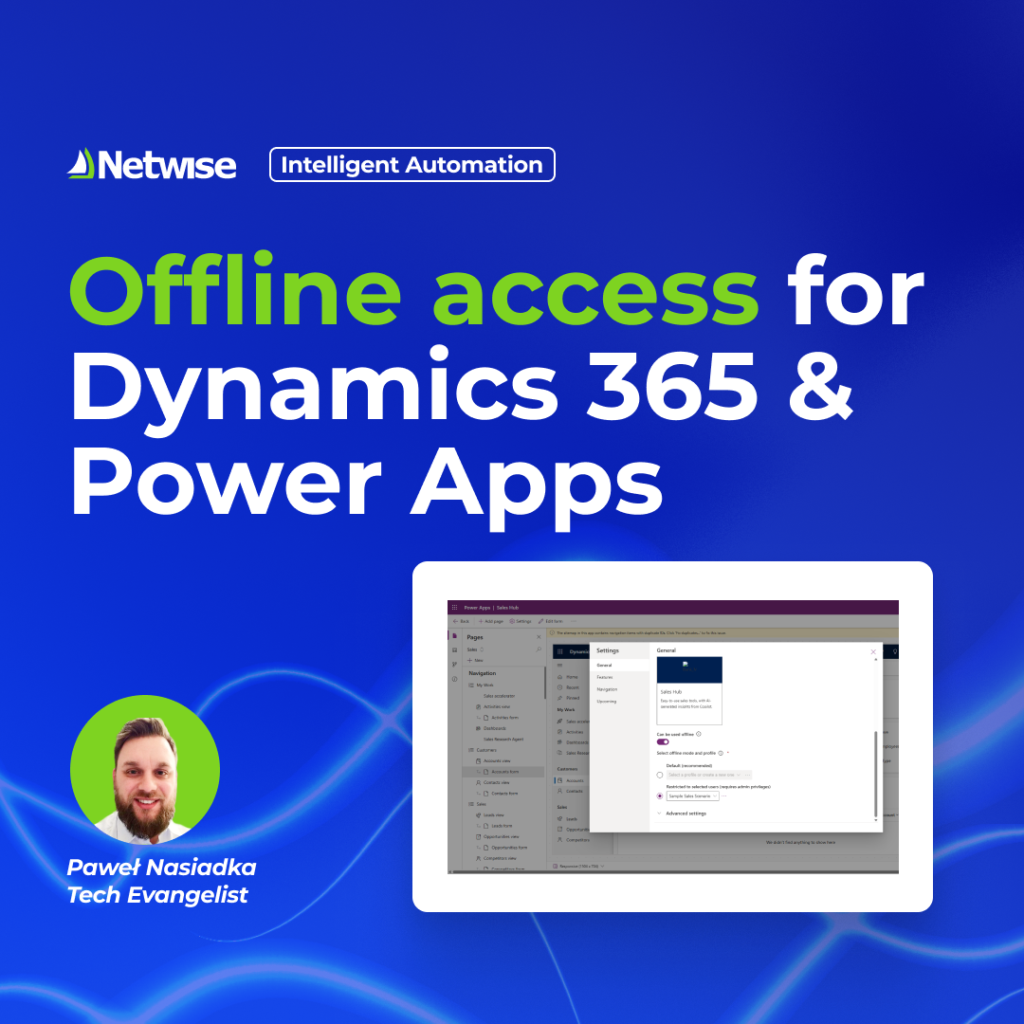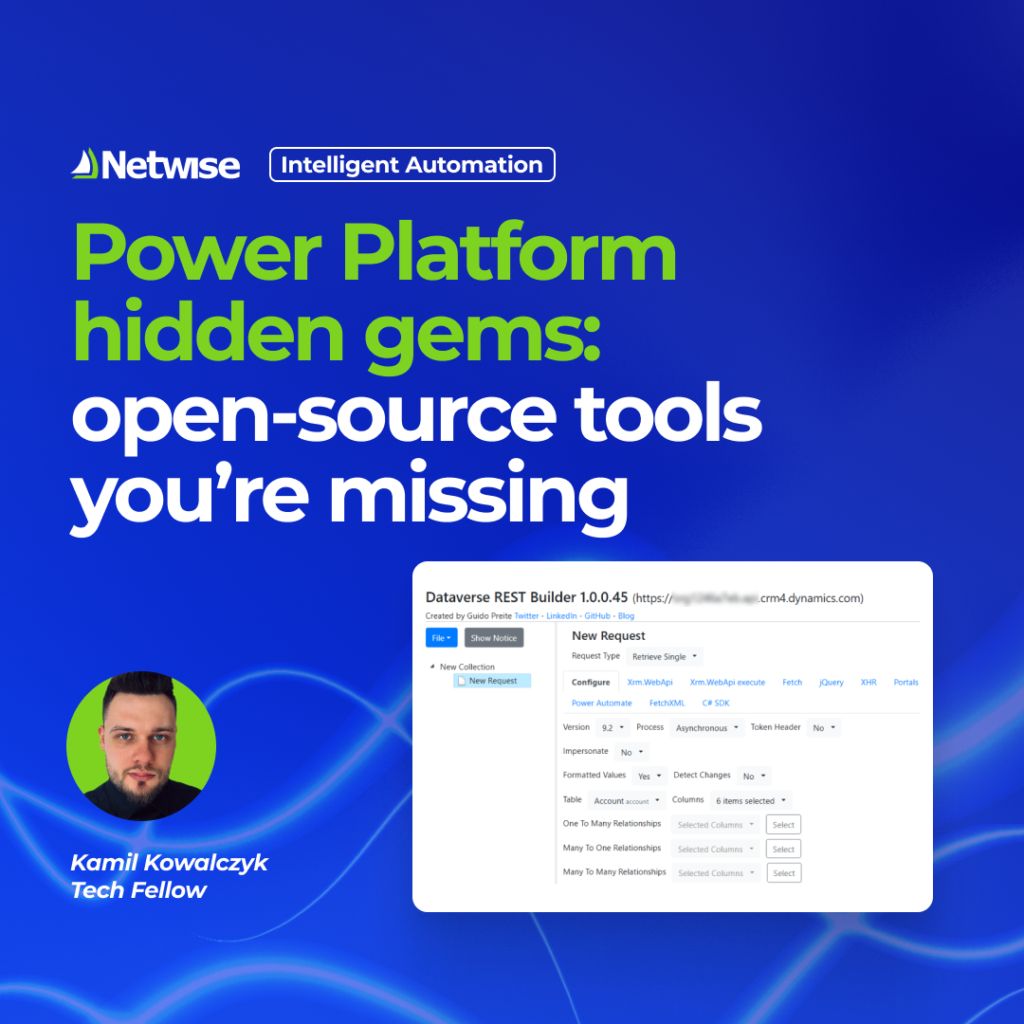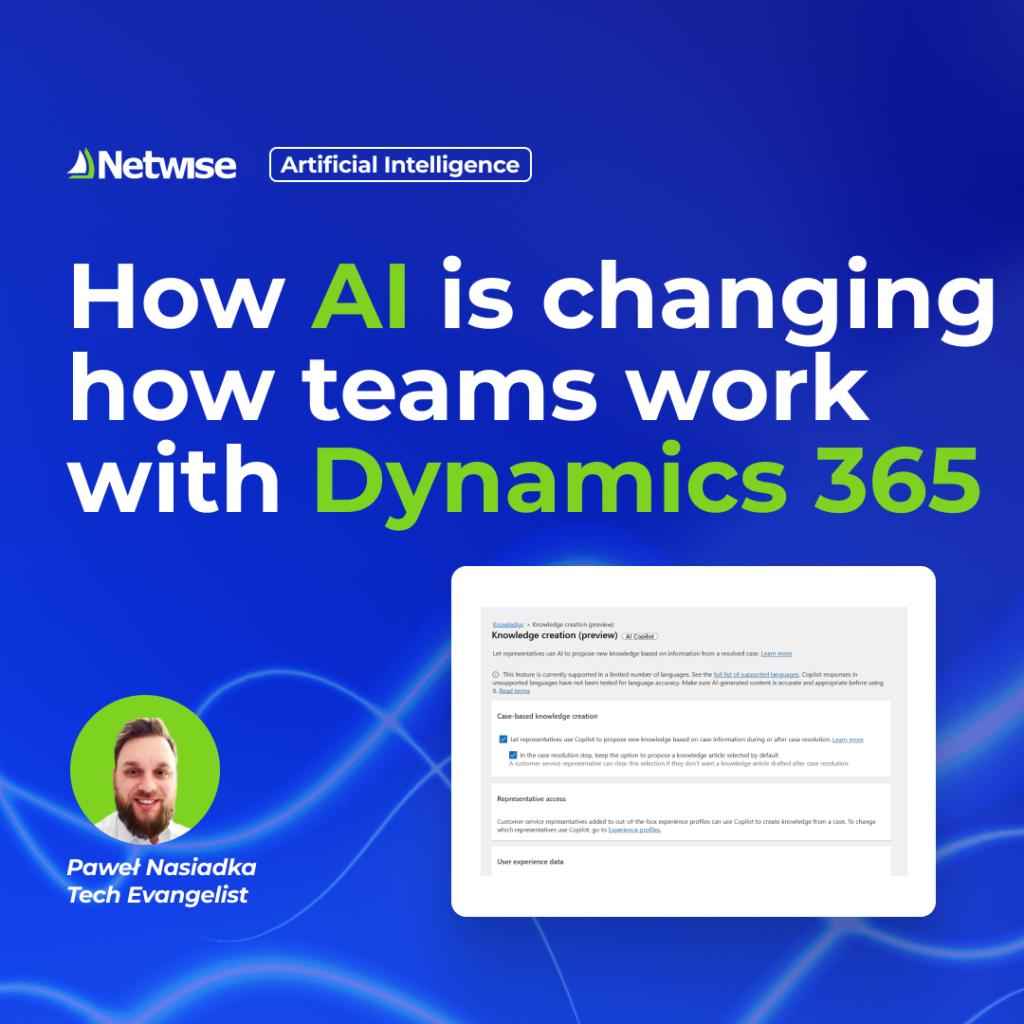AI Agents are now a part of our everyday reality. They can improve business processes, get work done, and save you a lot of time. One of the most important aspects of their design is how they communicate with the end user – this is what builds the user experience.
Think about an old IVR system where you had to go through an entire conversation just to find what you needed: “For English, press 1. For Polish, press 2. For orders, press 1. For product information, press 2.” And all you really wanted was to check your order status.
This illustrates how much the way an AI interacts with users can affect satisfaction.
Interaction types in Copilot Studio
In Copilot Studio, there are several ways to interact with the end user:
1. Topics with questions
You can use topics that ask users questions one by one. Each question stores a value in a variable. This means your bot collects information step by step.
Asking questions one by one.
2. Adaptive Cards
Adaptive Cards allow you to create user-friendly forms that gather multiple pieces of data at once.
They let you ensure that all required information is provided, and you can store multiple variable values simultaneously.
Using Adaptive Cards
3. AI and Prompt Actions
The newest method is using AI and Prompt Actions. With AI, you can extract all needed information directly from the user’s request, making the interaction feel more like a conversation with a human.
Extracting all information from the user’s request with AI.
Choosing the right method
The newest method is using AI and Prompt Actions. With AI, you can extract all needed information directly from the user’s request, making the interaction feel more like a conversation with a human.
- Sometimes, there’s no need to use AI Actions (which can affect usage costs).
- Other times, AI may be a better fit than Adaptive Cards.
- And sometimes, all you need is to ask two simple questions.
Efficient communication through Variables
Another important element of smooth communication with your AI Agent is avoiding repetitive questions.
Your Agent should remember what the user has already shared – and this is where variables come in.
Topic Variables
These are custom variables created and used within a single topic.
For example, if a user provides their information in one topic, the Agent won’t remember it once the conversation switches to another topic.
Global Variables
To store information across topics, use Global Variables. They can also receive values from external sources and maintain context throughout the conversation.
System Variables
Copilot Studio also includes built-in variables that store user information like first name, last name, and email address.
You don’t need to ask for these: they’re already stored in the System Variables.
Context Variables
When your Agent supports a Model-Driven App (for example, Dynamics 365), you can also use Context Variables.
These help the Agent understand what the user is referring to.
For instance, if a user is viewing an Account form and wants to see related orders, they can simply ask: “Show me all open orders for this account”, instead of typing the full name like “Show me all open orders for Account XYZ.”
The Agent knows what “this” refers to, because the context variable tells it that the user is currently on the Account form with ID:12344.
Similarly to MDM’s data stewardship capabilities, CI – Data allows us to effectively manage our data. The platform supports data mapping, cleansing, and enrichment using internal rules and third-party data providers. You can define calculated fields, transformations, and data quality checks based on your specific requirements.

